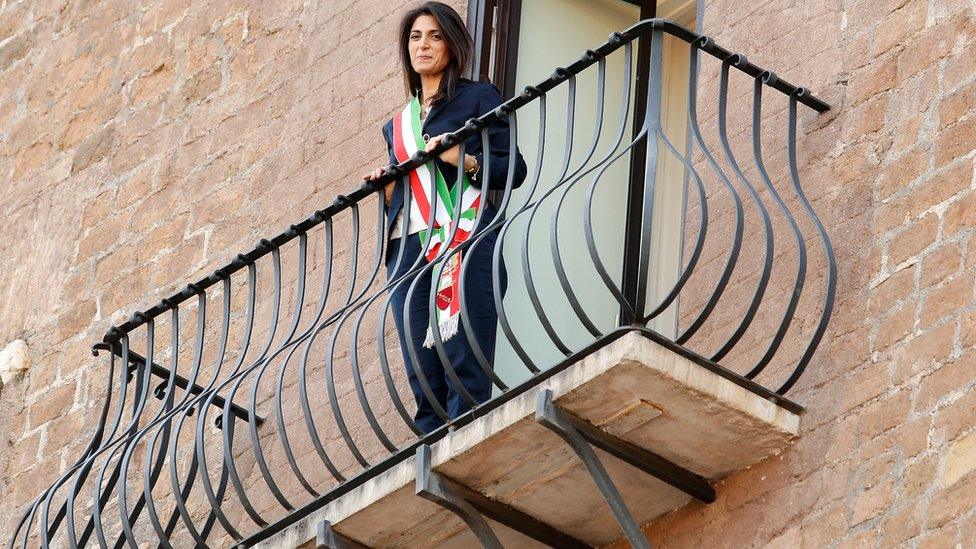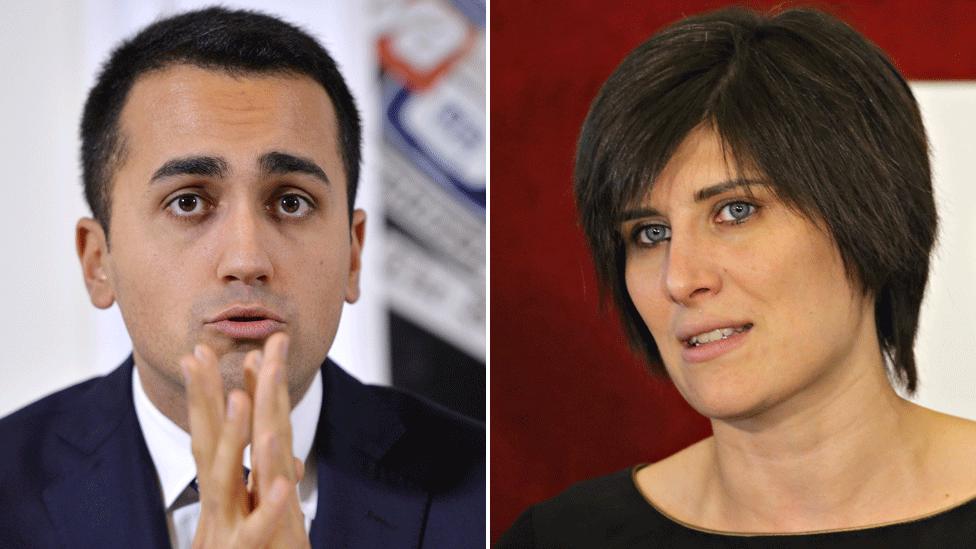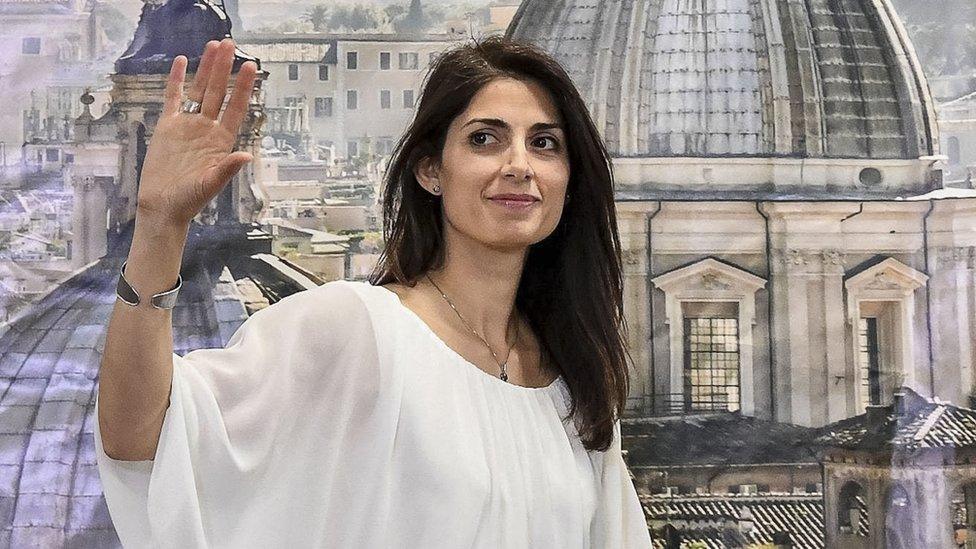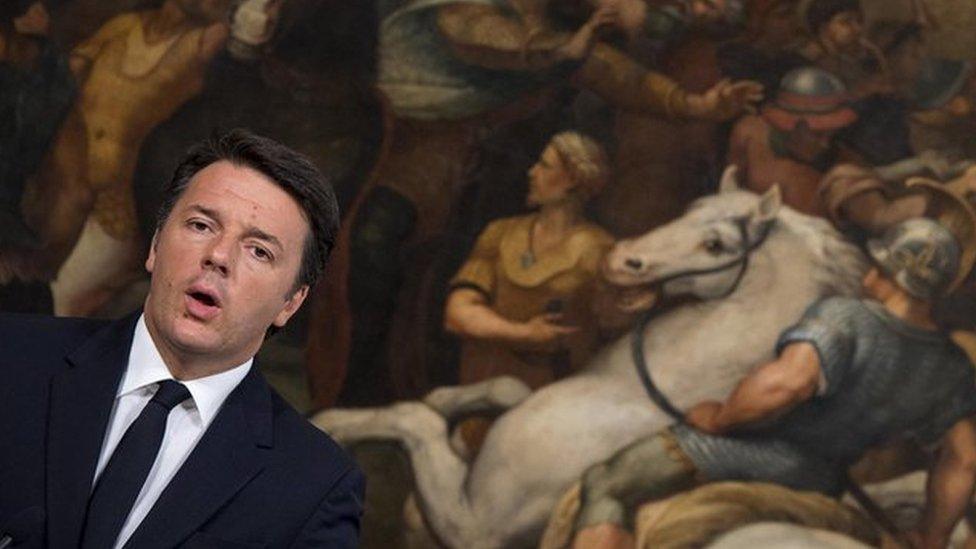Rome's protest mayor Raggi finds it tough at the top
- Published

Virginia Raggi became mayor in Rome promising a new era for the city's infamous politics
Italy's Five Star Movement (M5S) is learning a rather painful lesson. It is easier to be an anti-establishment movement than it is to be the establishment itself.
In June 2016, the populist movement made an unexpected breakthrough in local elections. Its candidates won races for mayor in Rome and Turin.
For the first time, Italians would be able to judge the movement on its record, not its promises.
So far that record is fairly brittle.
Five Star's newly elected mayor of Rome, 38-year-old lawyer Virginia Raggi, finds herself in trouble.
She has picked an environment chief, Paola Muraro, who is currently under investigation for her 12-year period as a consultant for the city's waste company. And sorting out Rome's rubbish collection is one of the city's most important jobs.
What' is worse is this: At first Ms Raggi denied knowing about the criminal investigation. Weeks later she admitted that Ms Muraro had, in fact, told her about it in July.
Deny-and-then-admit is a damaging political combination.

More on Virginia Raggi and Rome's problems
James Reynolds on the challenges facing Rome's first female mayor

The episode strikes at the heart of the Five Star Movement's reputation.
M5S made its name through its anti-corruption promises. Now, it finds itself bogged down in the same ground as other Italian political parties routinely accused of mismanagement and corruption.
Those other parties are now jostling to deliver their own statements of righteous indignation.
"I have never seen so many lies one after the other," said Prime Minister Matteo Renzi, who leads the centre-left Democratic Party.
"The Five Star Movement has not passed the crash test," said Interior Minister Angelino Alfano, who is head of the small New Centre-Right party. "They didn't have an air bag and they smashed up."

Five Star's new leaders include deputy parliament speaker Luigi Di Maio and Turin Mayor Chiara Appendino
M5S accuses its critics of exaggerating the problems it faces.
"Truth and humility make us stronger than before," wrote one of the movement's most prominent voices, deputy parliament speaker Luigi Di Maio, on his Facebook page, "Dialogue with honest people is what moves this project forward. They won't stop us."
The problems in Rome may complicate the Five Star Movement's efforts to present itself as a credible national alternative to the prime minister.
Later this year, Matteo Renzi is due to hold a referendum on reforming the powers of parliament. Mr Renzi has threatened to resign if he loses the vote.
Five Star has been expected to be the prime minister's biggest opponent in this referendum. But now the movement is stuck with problems of its own.

What is Five Star?

Beppe Grillo has gradually reduced his role in the party in favour of younger politicians
Founded by comedian Beppe Grillo in 2009, Five Star has long campaigned against corruption in Italian politics
Launched as a protest party, it won 25.5% of the vote and 108 seats in the 2013 general election
It is now neck and neck in the opinion polls with the ruling Democratic Party, with around 31% of the vote
New leaders have emerged, such as deputy parliament speaker Luigi Di Maio
Five Star wants greater public transparency, income support for the poor and tax cuts for small businesses
And it wants Italians to have a vote on whether they remain in the euro
- Published20 June 2016

- Published9 July 2016
